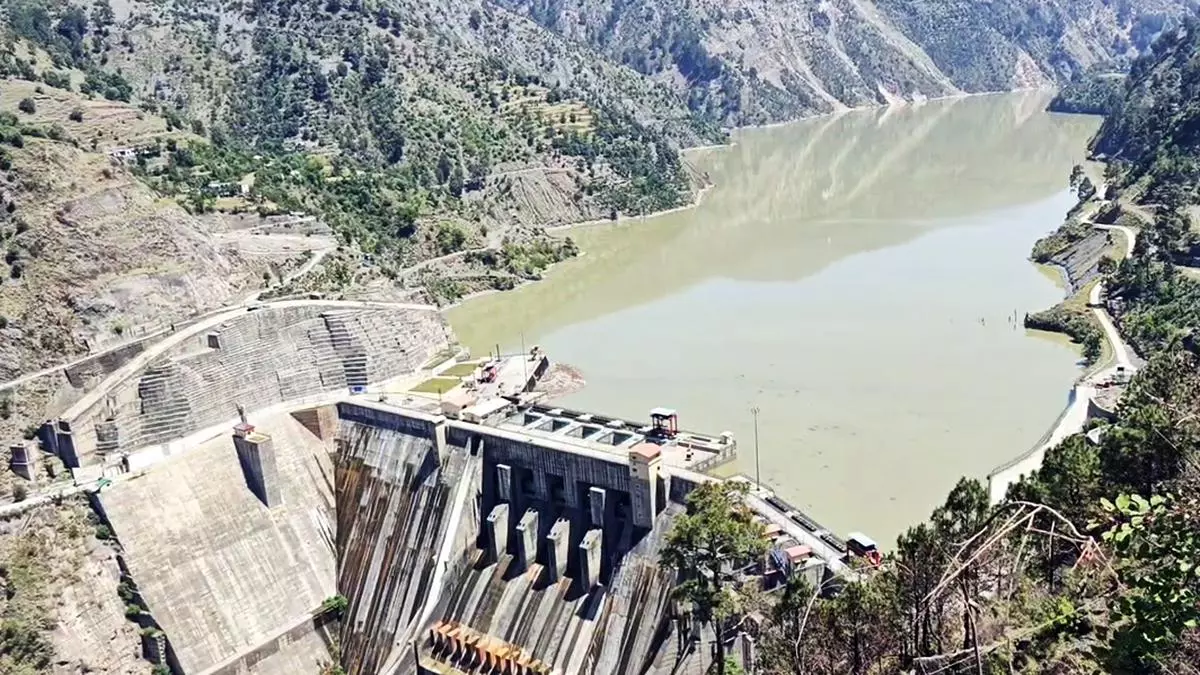
India vows to shut off water supply over Kashmir, causing panic in Pakistan
One street from the Indus River, Pakistani farmer Homla Thakhur worries about his future while dousing his parched veggies with insecticides. After a devastating militant strike in Kashmir, India has threatened to restrict supplies upstream, the river is running extremely low, and the sun is at its zenith.
Thakhur, 40, stated, “If they stop water, all of this will turn into the Thar desert, the whole country,” before returning to the river to refuel the spray gun’s tank.
“We’ll die of hunger.”
The Latifabad region of Sindh’s southeast province, where the Indus River empties into the Arabian Sea after rising in Tibet and winding across India, is where his almost 5-acre (2-hectare) farm is situated.
More than 15 Pakistani farmers and a number of other specialists shared Thakhur’s concerns, particularly given the lack of rain in recent years.
India said that the 1960 agreement, which guarantees water for 80% of Pakistani agriculture, would remain in effect until “Pakistan credibly and irrevocably abjures its support for cross-border terrorism.” On Wednesday, the World Bank-mediated Indus Waters Treaty was suspended for the first time.
India claims that two of the three militants who killed 26 individuals in Kashmir by attacking tourists were from Pakistan. According to Islamabad, “any attempt to stop or divert the flow of water belonging to Pakistan… will be considered as an Act of War” and it has denied any involvement.
The treaty divided the competing nuclear-armed nations over the Indus and its tributaries.
Since the treaty only permits India to construct hydropower facilities without substantial storage or dams on the three rivers allotted to Pakistan, government officials and experts on both sides argue that India cannot instantly restrict water flows. However, after a few months, things might begin to change.
Chandrakant Raghunath Paatil, India’s minister of water resources, declared on X that “we will ensure no drop of the Indus River’s water reaches Pakistan.”
When asked about the dangers in Pakistan, he remained silent.
While building hydroelectric dams that may take four to seven years to complete, two Indian government officials, who asked not to be named, stated that the nation could begin utilizing canals to divert water for its own fields in as little as a few months.
According to Kushvinder Vohra, the recently retired head of India’s Central Water Commission, India will immediately cease exchanging information such as hydrological flows at different locations of the rivers that flow through the country, refrain from issuing flood warnings, and skip the yearly meetings of the Permanent Indus Commission, which is composed of one official from each of the two nations.
In addition to serving as India’s Indus Commissioner, Vohra now occasionally advises the government. “They will not have much information with them when the water is coming, how much is coming,” his statement read.
“Without the information, they cannot plan.”
According to economists, a lack of water will affect not just agriculture but also the production of energy, which might seriously harm the economy.
Pakistan had misjudged the risk of India withdrawing from the treaty, according to economist Vaqar Ahmed, team lead of the UK consultancy firm Oxford Policy Management.
“India hasn’t got the kind of immediate infrastructure to halt the waterflows, especially during flood times, so this period creates a crucial window for Pakistan to address the inefficiencies in its water sector,” he stated.
“There are a lot of inefficiencies, leakages.”
DISPUTES IN PROGRESS
The government of Indian Prime Minister Narendra Modi has been attempting to renegotiate the treaty in recent years, and the two nations have been attempting to resolve some of their disagreements in the Permanent Court of Arbitration in the Hague regarding the extent of the water storage area at the Kishenganga and Ratle hydroelectric plants.
“We can now pursue our projects in free will,” Vohra remarked.
India informed Pakistan in a letter on Thursday that since the treaty was signed, a number of factors have changed, such as population growth and the need for more environmentally friendly energy sources, such as hydropower.
A representative for the World Bank stated that it does “not opine on treaty-related sovereign decisions taken by its member countries” and that it is a “signatory to the treaty for a limited set of defined tasks.”
Nadeem Shah, who cultivates cotton, sugar cane, wheat, and vegetables on his 150-acre farm in Sindh, expressed concern about drinking water as well.
“We have trust in God, but there are concerns over India’s actions,” he stated.
Over 16 million hectares of farmland, or up to 80% of the total, are irrigated by the three rivers intended for Pakistan, a nation of 240 million people.
India’s actions create uncertainty “into a system that was never designed for unpredictability,” according to Ghasharib Shaokat of Pakistan Agriculture Research, a research organization based in Karachi.
“At this moment, we don’t have a substitute,” he stated. “The rivers governed by the treaty support not just crops, but cities, power generation, and millions of livelihoods.”
Even though India and Pakistan have fought four wars since their separation in 1947, the treaty has mostly remained intact. However, Pakistani officials claimed that the suspension sets a dangerous precedent.
“We’re already locked into generations of conflict, and by exiting the Indus Water Treaty, I believe we’re locking future generations into a brand new context of conflict,” stated former Pakistani Foreign Minister Bilawal Bhutto Zardari.
“That must not happen.”
All Categories
Recent Posts
Tags
+13162306000
zoneyetu@yahoo.com



